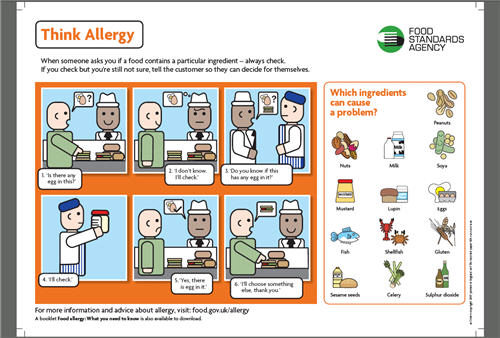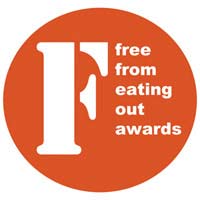The Food Standards Agency has said that restaurants and cafes should take steps to warn customers about possible allergens in food. They suggest that products made with ingredients which could spark an allergic reaction should have them listed on a card, label or menu, and that staff should always check whether a products contains a potential allergen when asked by a customer. guidance says.
At the moment, businesses which sell food prepared or wrapped on their own premises (such as sandwich shops, delicatessens, cafes and bakeries) are not legally required to say whether their products contain potential allergens. Ingredients which can prompt allergic reactions include nuts, milk, soya, mustard, eggs, shellfish, gluten and celery.
Apparently, the FSA has produced booklets and posters to promote the guidance to catering businesses and staff.
This has been welcomed by Coeliac UK. Sarah Sleet (CEO) said: “It is essential that cafes, delis and restaurants are fully aware of these guidelines and have a strategy for dealing with allergens be it from chefs to serving staff to ensure people with coeliac disease can make a safe choice.”
This is still only guidance, not mandatory, but should be welcomed nonetheless as a step forward. Many places, of course, already do their best to provide this information, either on the menu or packaging, or by asking the chef.
You can see the guidance notes here.

(This is a smaller version of the FSA poster).
 |
I’ve written a book summarising what we’ve learnt over 20 years of dealing with the gluten free diet, and it might be just what you’re looking for. It packs the lessons we’ve learned into what I hope is a helpful and straightforward guidebook. It’s available on Amazon, as a paperback or for your Kindle… |




A highly informative and visual blog. Touching further on health and safety, it is imperative that places that serve food have the most basic of food hygiene standards. These can easily be obtained, through food hygiene and safety courses, and give customers the peace of mind that they are eating in a safe environment. This spreads to any place that food is prepared or eaten, and is a legal requirement.